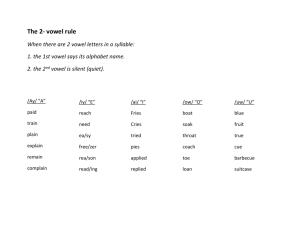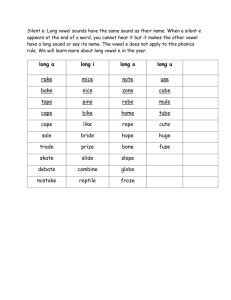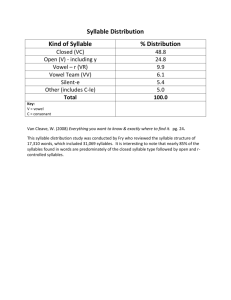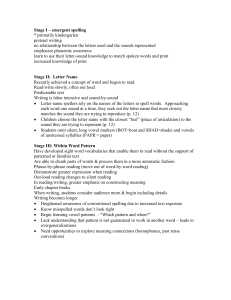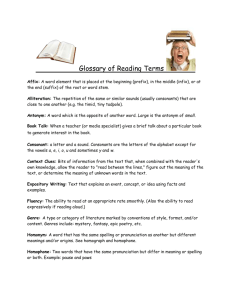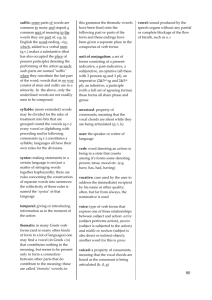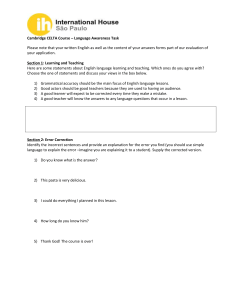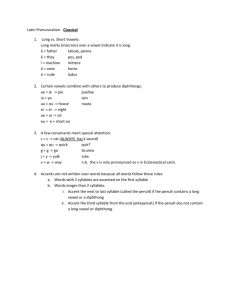Twenty-Six Common Spelling Rules
advertisement
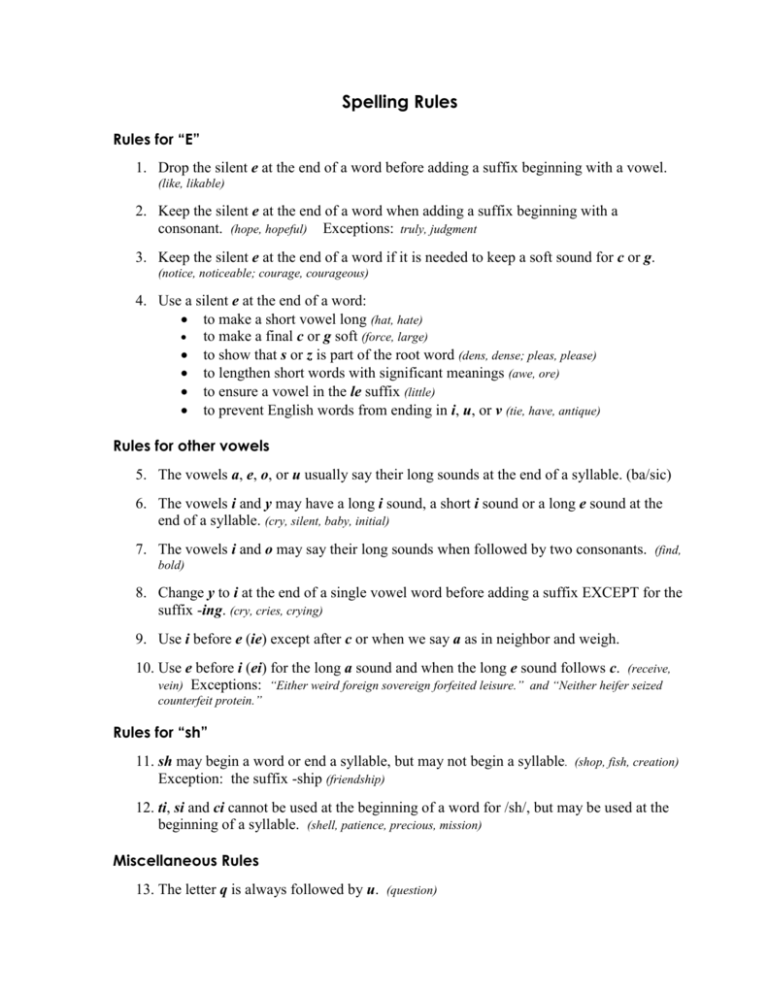
Spelling Rules Rules for “E” 1. Drop the silent e at the end of a word before adding a suffix beginning with a vowel. (like, likable) 2. Keep the silent e at the end of a word when adding a suffix beginning with a consonant. (hope, hopeful) Exceptions: truly, judgment 3. Keep the silent e at the end of a word if it is needed to keep a soft sound for c or g. (notice, noticeable; courage, courageous) 4. Use a silent e at the end of a word: to make a short vowel long (hat, hate) to make a final c or g soft (force, large) to show that s or z is part of the root word (dens, dense; pleas, please) to lengthen short words with significant meanings (awe, ore) to ensure a vowel in the le suffix (little) to prevent English words from ending in i, u, or v (tie, have, antique) Rules for other vowels 5. The vowels a, e, o, or u usually say their long sounds at the end of a syllable. (ba/sic) 6. The vowels i and y may have a long i sound, a short i sound or a long e sound at the end of a syllable. (cry, silent, baby, initial) 7. The vowels i and o may say their long sounds when followed by two consonants. (find, bold) 8. Change y to i at the end of a single vowel word before adding a suffix EXCEPT for the suffix -ing. (cry, cries, crying) 9. Use i before e (ie) except after c or when we say a as in neighbor and weigh. 10. Use e before i (ei) for the long a sound and when the long e sound follows c. (receive, vein) Exceptions: “Either weird foreign sovereign forfeited leisure.” and “Neither heifer seized counterfeit protein.” Rules for “sh” 11. sh may begin a word or end a syllable, but may not begin a syllable. (shop, fish, creation) Exception: the suffix -ship (friendship) 12. ti, si and ci cannot be used at the beginning of a word for /sh/, but may be used at the beginning of a syllable. (shell, patience, precious, mission) Miscellaneous Rules 13. The letter q is always followed by u. (question) 14. When c or g precede e, i, or y, they usually say their soft sound /s/ or /j/. (circle, cylinder, center; gem, giant, gypsy) 15. English words do not end in i, u, or v. Silent e is often added. (true, love, die) 16. ck and dge may be used at the end of a short word when a single vowel says its short sound. (duck, badge) 17. When or follows w it usually says /er/. (work, word) 18. Wr and kn may only be used at the beginning of a word. (knife, wrap) 19. The consonants f, l, and s are usually doubled at the end of single syllable words following a single vowel. (ball, toss, off) 20. Drop the second l from the words all, till, and full when adding them to other syllables. (almost, until, wonderful, fulfill) 21. Use c after x if the word contains an /s/ sound after the /ks/. Never use s. (excellent, excite) 22. Double the final consonant when adding a suffix beginning with a vowel if all these are true: A. the last syllable of the word is accented B. the consonant is preceded by a single vowel and C. the single vowel has a short sound. (admit, admitted, admitting) 23. Every syllable must have at least one vowel. Silent e is often added to ensure the vowel. (table) 24. Use ay for words ending with the long /a/ sound. (may, say) 25. Use ck for the /k/ sound after a single vowel which says its short sound in words with one syllable. (tick, tock) 26. Use cc for the /k/ sound to protect the short vowel unless e, i, or y follow, then use ck. (occupy, hiccups; picnicking, frolicked)

